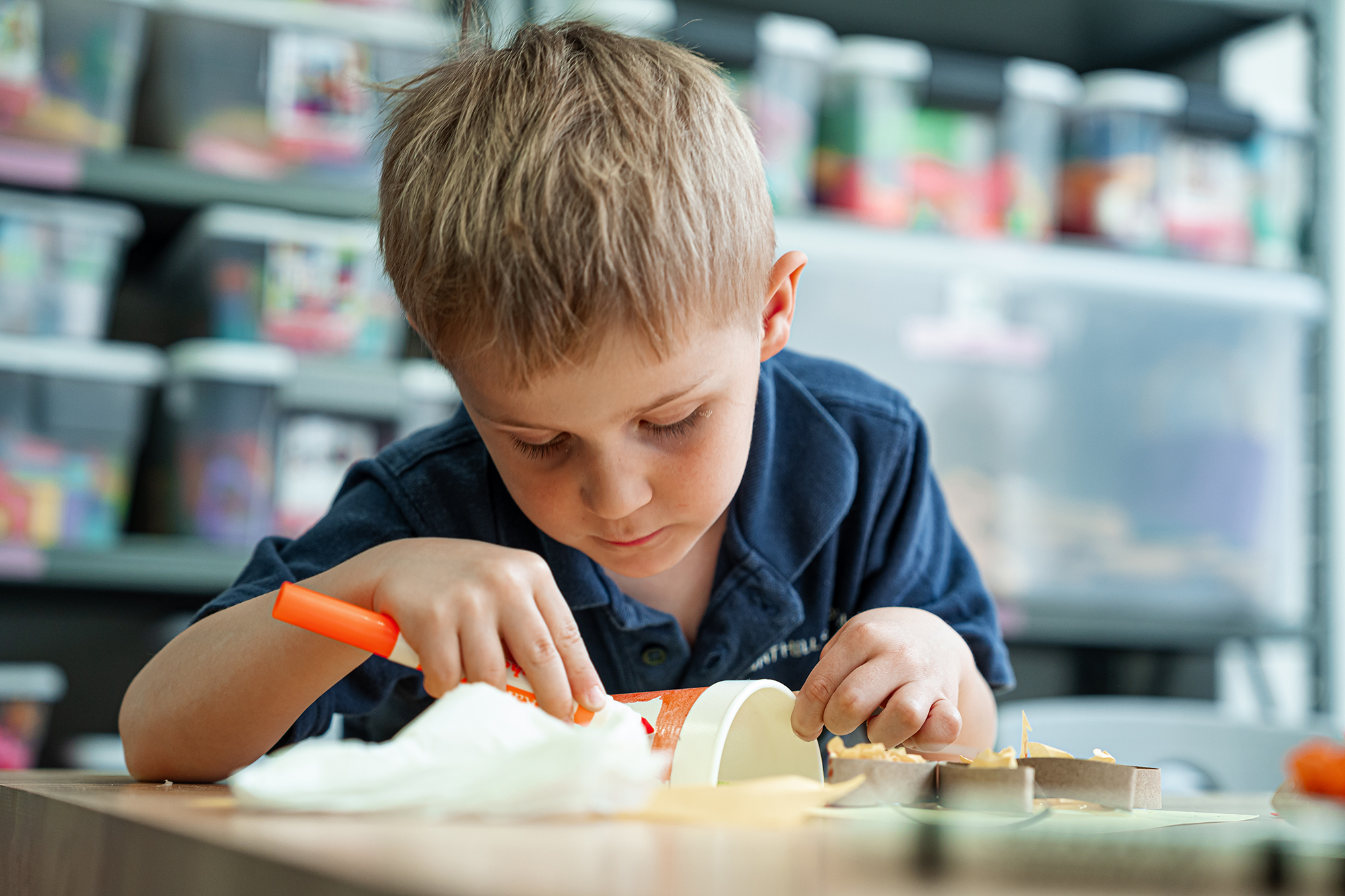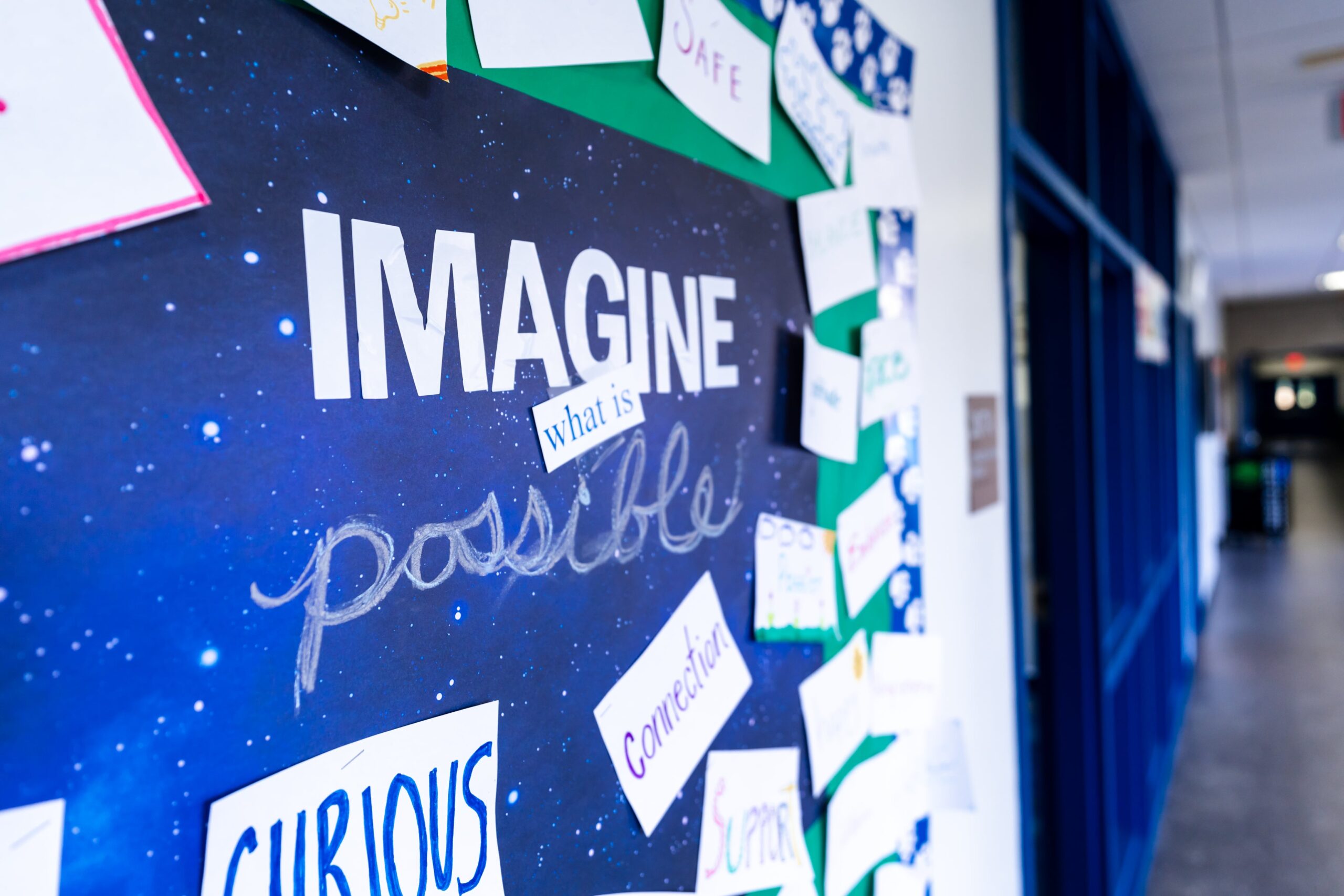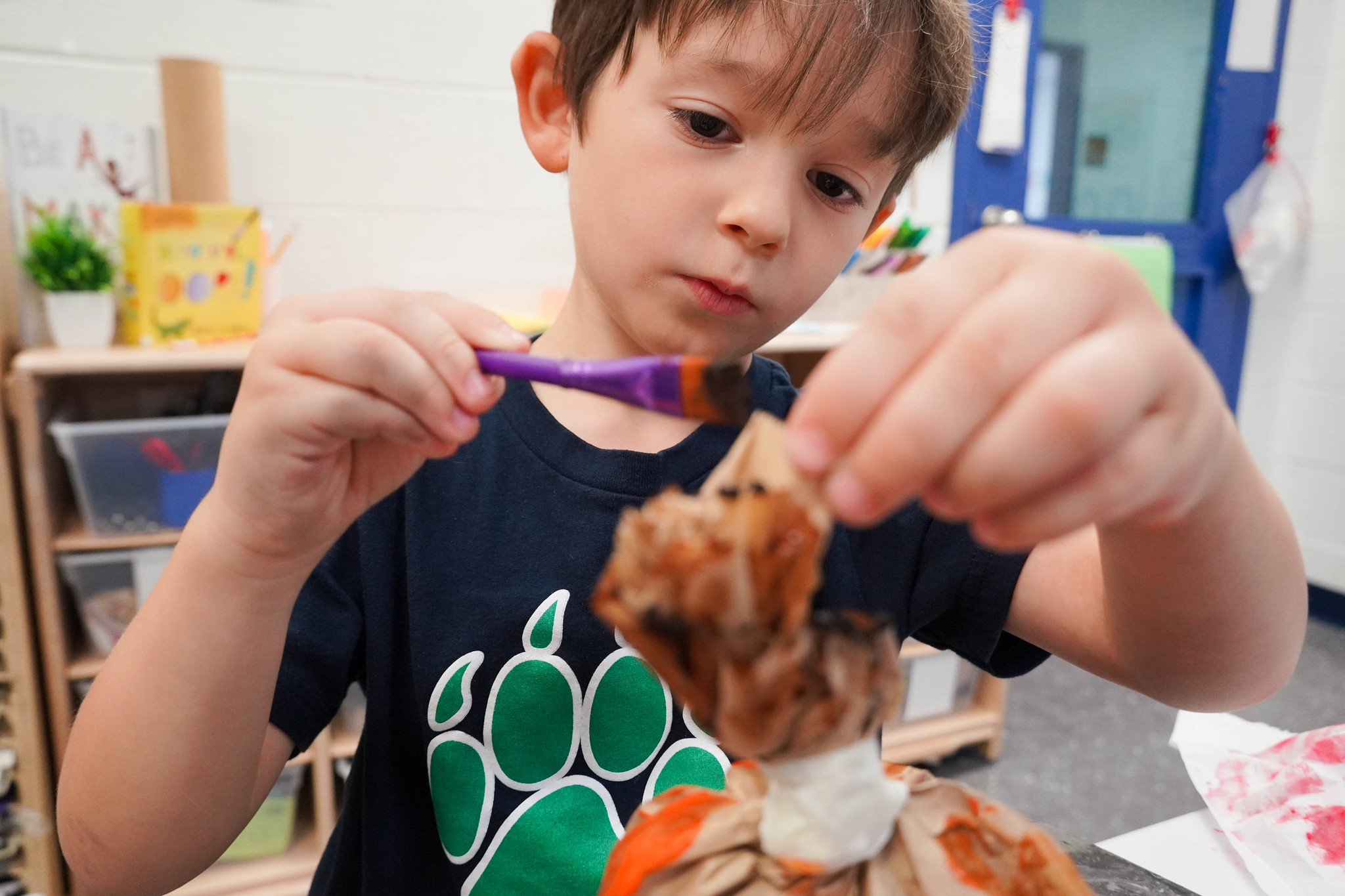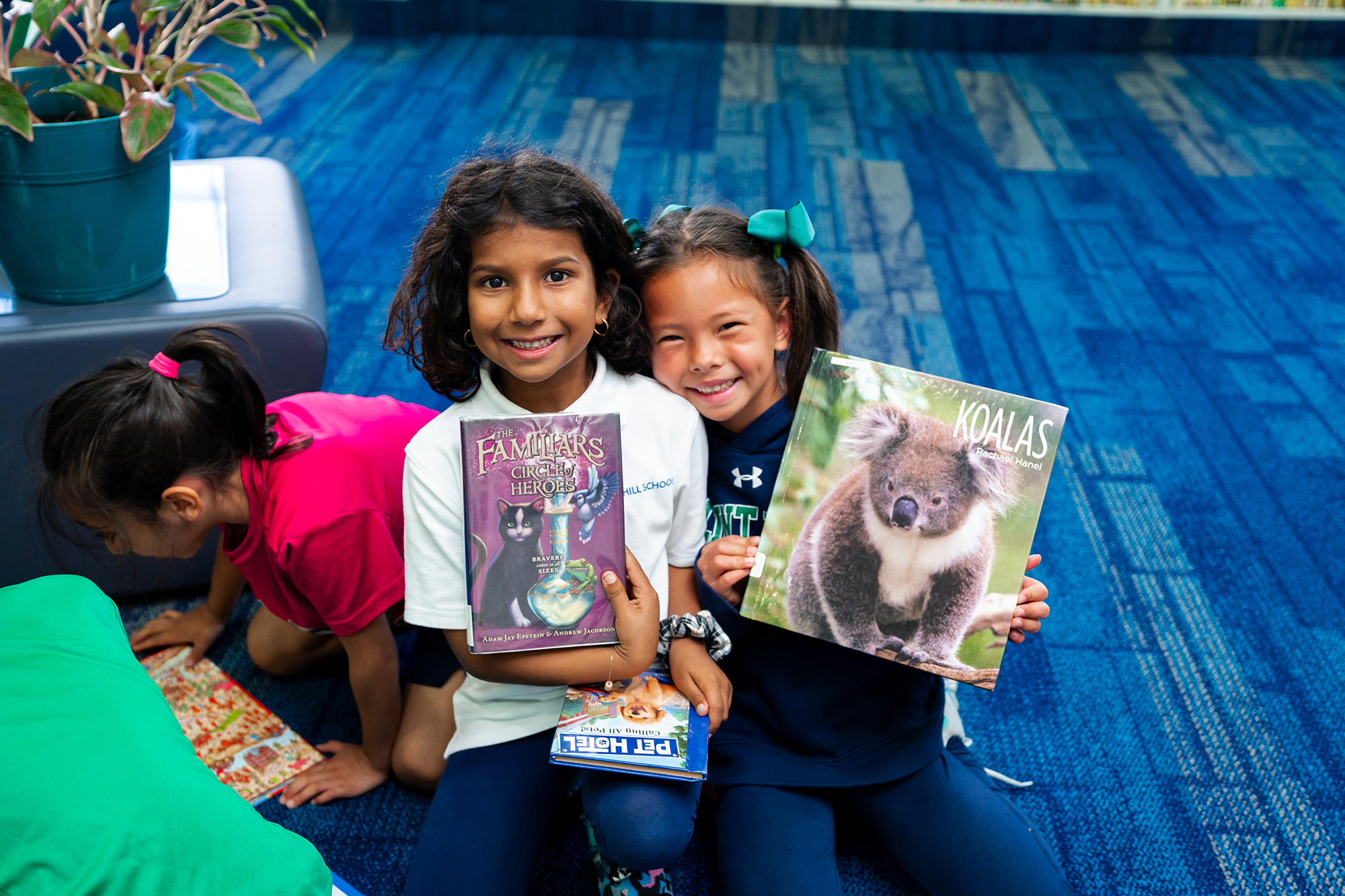HUSKY HIGHLIGHTS
LEARN MORE ABOUT FLINT HILL
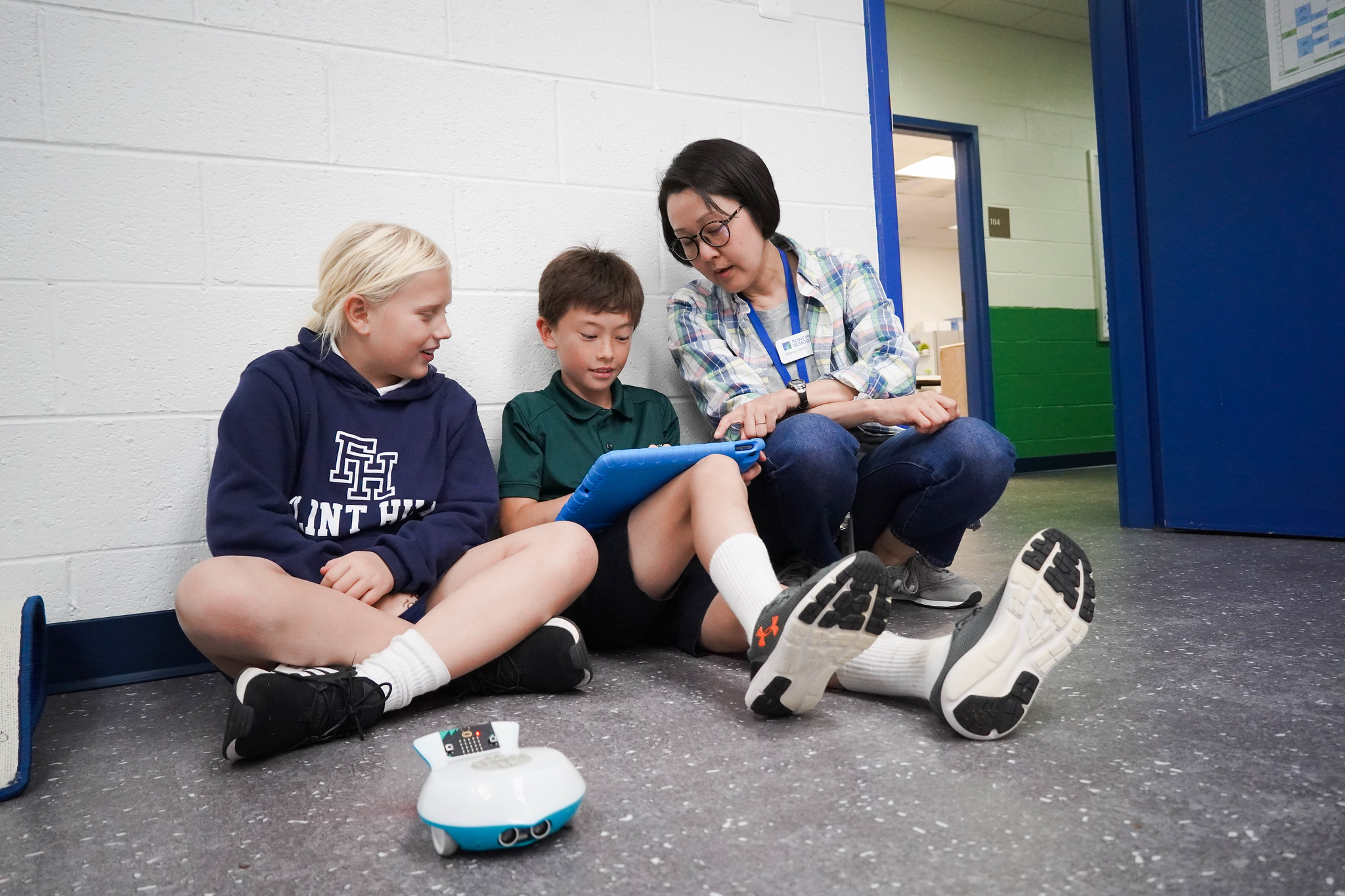
October 31, 2023
Written by Flint Hill Admission Team
Teacher Spotlight: Teena Hahn, Lower School Computer Science
When working with Flint Hill’s youngest students, Lower School Computer Science Teacher Teena Hahn knows that resilience and self-confidence are the keys to success. She helps JK and fourth-grade students understand complex concepts by challenging them to ask the right questions and collaborate with others.
How did you get into teaching Computer Science?
I taught a few different elementary school grades, and I’ve taught abroad. But I actually did my master's in educational technology back in 2015. It's not about throwing the latest technology tools at the students. It's getting them to create and redefine their learning using technology tools where it applies. I'm always asking myself, “Is this tool going to enhance their learning?” If it's not, I don’t use it. So it's not about, “Hey, let's throw all these tools at the students,” but it’s really thinking about their learning. And that's the objective there.
Tell me what you love about teaching Lower School students.
Well, I enjoy teaching computer science to Lower School students specifically because they're so eager to learn and experience new things. They're more inclined to welcome the product of struggle. “If I don't get it, I can learn from my mistakes.”
Most of the kids I have, especially the younger ones, have not really experienced computer science as a subject. With junior kindergarteners, they're brand new to schools. Everything is new to them. But just the “a-ha moments” I see when they accomplish a puzzle or solve a difficult problem, you know, they'll come running up to me saying, “Ms. Hahn, I got it!” Or they'll go to their friends and tell them. They're so expressive with their accomplishments. I find that they find it easy to ask for help. So when they do have a problem, they won't tend to internalize, but they'll be quick to ask for help. Which is great because that's part of our growth mindset.
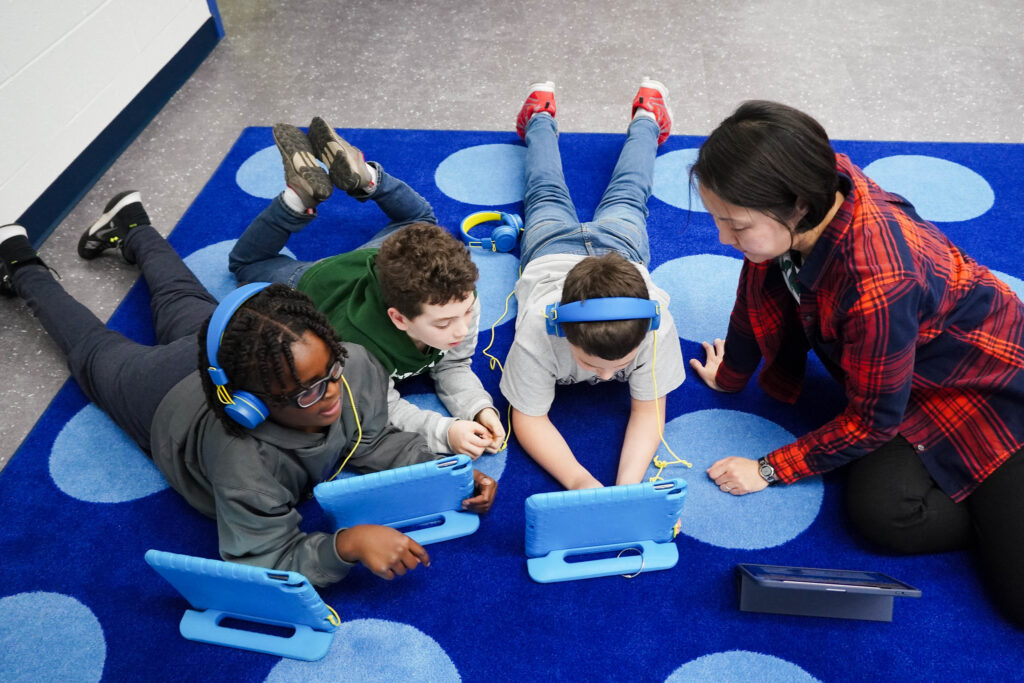
How exactly do you begin teaching computer science to this age range?
I teach students to look at a problem or a puzzle in different ways, different angles, but then also to figure out what solution would work best to solve this puzzle. And most of these puzzles are quite difficult. So then that also involves collaboration. How do you ask your friends to help you solve this puzzle?
They develop resilience, so they’re not just giving up after the first time. I say, “If you need help, are you just going to come and ask me right away? Or are you going to actually try to solve the problem on your own?” I ask them to try three times on their own, and then if they’re really struggling, go ahead and ask three friends. And then if you're really stuck, you can ask me. I want the students to think of me as a last resort.
Some parents looking at schools for their children are concerned about technology use in the Lower School, considering that Flint Hill is an Apple Distinguished School. What are your thoughts on “how much is too much” tech for an elementary school class?
Everyone has their own idea of how much is too much technology. But I can see that students are not on their devices all day long. In my class, they use their iPad, but I see them for half an hour once a week, and they'll be on their iPad for maybe 20 minutes of that time. The rest is a lesson or some unplugged activity. In the classroom, they'll be doing work with all kinds of manipulatives.
All the learning is very hands-on, very engaged. There are a lot of tools that are not technology related. There's a lot of low-tech or even no tech, you know, good old pencil, paper, scissors. If a parent did come to me with that concern, I would tell them we definitely don't promote screens all day long. There are a lot of hands-on activities.
What sets Flint Hill apart from other schools?
The first thing that comes to my mind is we focus on not just the academic achievement of the students, but it's a lot about the social-emotional well-being on top of academic achievement. That's important, too. But it's always about, “How do we grow these students into functioning members of society who show care and concern for others, who can problem-solve, who can work well with others?” All the skills that adults need. That's our job.
At Flint Hill, the teachers are very nurturing. We provide this positive learning environment for students to feel safe to be themselves, which is really important. But they can also feel safe to take those meaningful risks in their learning and to know that, oh, if I make a mistake, that's not the end of the world, but I can learn from that mistake and I can grow from that mistake.
The outcome is not the emphasis, it's about the effort and the process of learning. It's not about “I solved that puzzle,” it’s about “How did you get there? What did you learn from that?”
What’s going on in your class right now?
Right now, the older students are learning coding using Scratch, which is a free coding community for children. It's also a coding language where students simply drag and drop blocks and create code for whatever character that they've picked. There's a whole library of characters and backgrounds. But it's fun, too. They're learning actual basic coding and concepts like sequencing. How do you make your character run through a sequence of commands? Walk forward three steps, jump, walk backwards two steps. Those are all orders of command. And then you get more difficult concepts like loops. How do you get a character to repeat a certain set of sequences or commands? So getting them to use loops and then other more difficult concepts like functions.
With the JK students, they’re learning to use the PBS Kids Scratch Junior app on their iPads, which is like scratch, but more simplified and features PBS Kids characters. So if those children tend to watch the PBS Kids cartoons or shows on TV, they can use those characters in their projects to learn basic coding concepts.
They’re actually creating something new, which is really the goal. “How do you apply the concepts you learned in class to create something new and share it with other kids in the Scratch community?” Then, those kids can see what our students have done and maybe try remixing one of our projects or trying something else. It's a great program.
LEARN MORE ABOUT FLINT HILL
Fill out the form to receive updates from our team.
Drawing directly from neuroscience research, Flint Hill's educational philosophy emphasizes the importance of thorough comprehension over hurried advancement.
A VAIS committee completed its 10-Year Accreditation Visit in April 2024. The committee reported its immediate findings in this short presentation to faculty and staff.
Kindergarteners embarked on a project that nurtured their artistic abilities and expanded their horizons to encompass cultural and linguistic dimensions.
Running out of books for your young reader? Lower School Librarian Michelle Plaut shares eight book recommendations for children in Grades JK-3 (ages 4-8).



